Is he stalling? Iran's condition that the US return to negotiations on its nuclear program

Iran has ruled out a prompt resumption of nuclear negotiations with the United States following the 12-day war with Israel, as President Donald Trump is demanding.
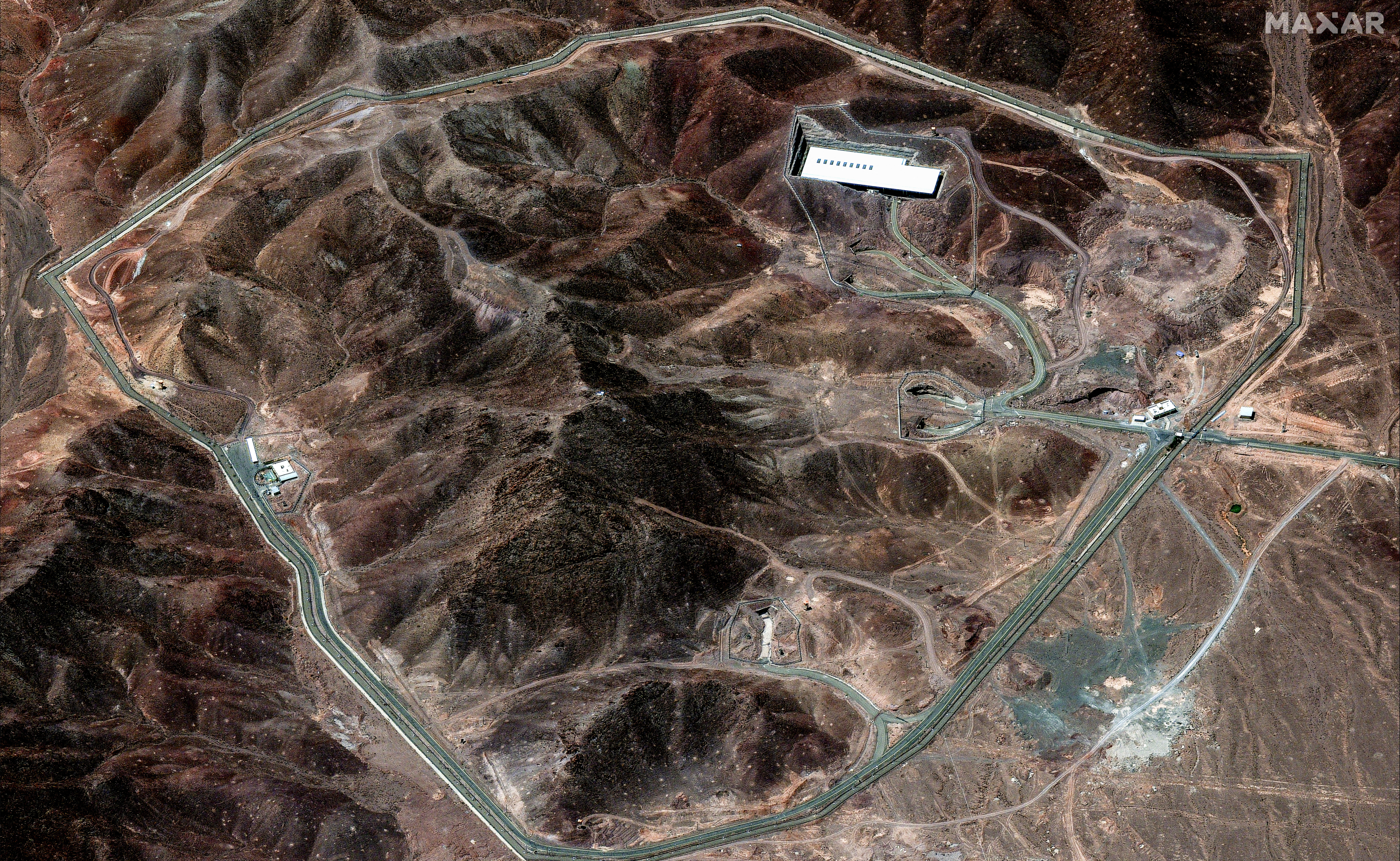
The Fordo uranium enrichment plant in central Iran before it was bombed. Photo: AFP
Two senior Iranian officials have made clear their demand for a meeting at the negotiating table: that Washington guarantee that it will not bomb the Islamic Republic again.
On Monday, during an interview with the BBC, Deputy Foreign Minister Majid Takht-Ravanchi said the Trump administration has informed Iran, through mediators, that it wants to return to negotiations, but that it "has not made its position clear" on the possibility of further attacks while the talks are ongoing.
On Tuesday, Foreign Minister Abbas Araqchi made a similar statement: "For us to decide to resume negotiations, we will first have to ensure that the United States will not attack us militarily again during the negotiations," he said.
The United States and Iran had agreed to hold the sixth round of negotiations between the two countries on June 15 in Oman, but two days earlier, Israel began bombing Iranian territory, disrupting the meeting.
Israel launched the war with the goal of destroying Iran's nuclear program and neutralizing its powerful ballistic missile arsenal. The United States became involved in the conflict by attacking three key Iranian facilities: Fordo, Natanz, and Isfahan with bunker-busting missiles.
After a complete ceasefire was agreed upon, Trump announced on June 25 that the United States and Iran would meet "next week" to discuss a possible nuclear deal. Two days later, the US president warned that his country would reserve the option to attack Iran again if intelligence suggests that Iran's nuclear program is capable of enriching uranium to "concerning levels."
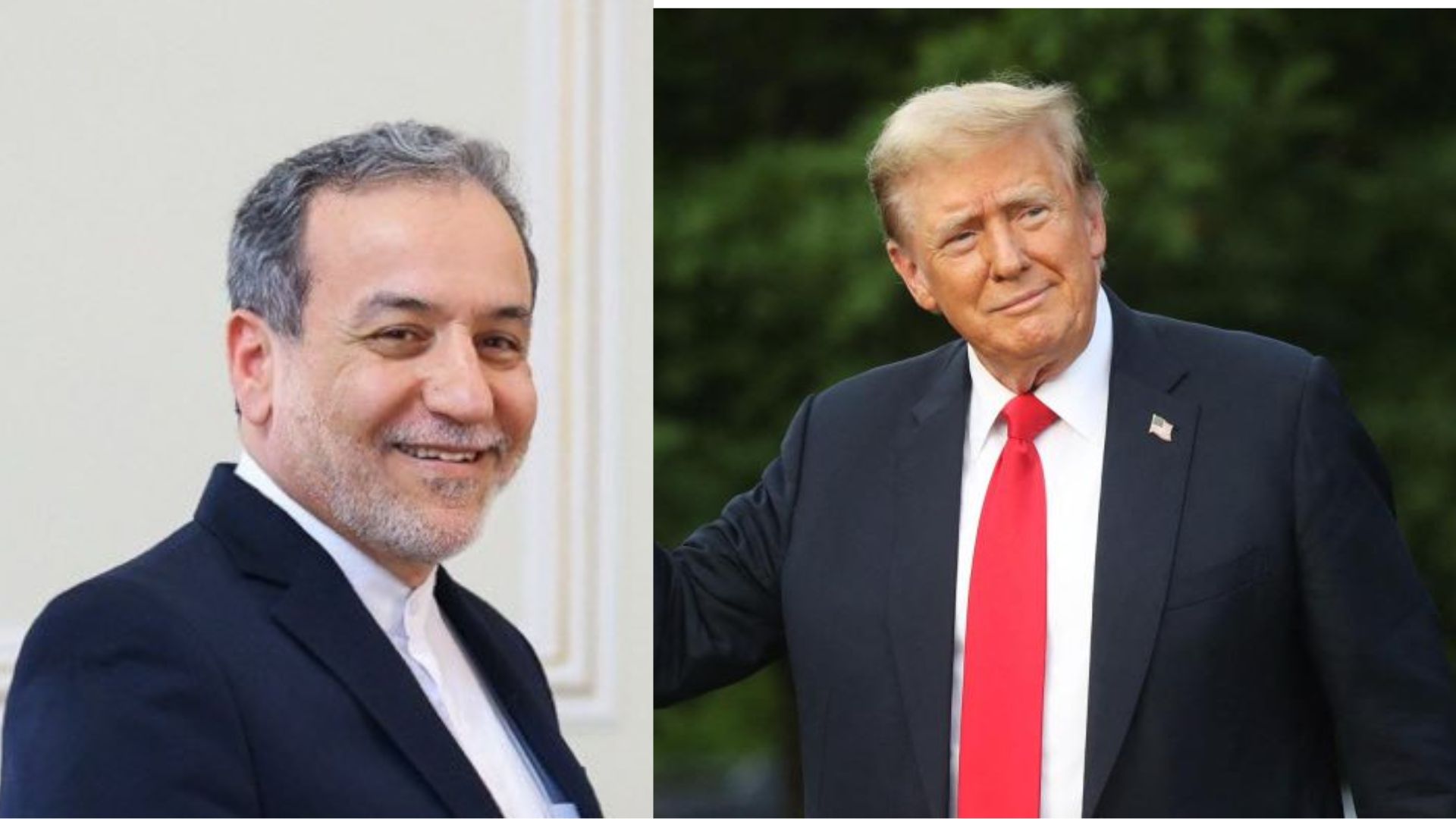
Abbas Araqchi and Donald Trump. Photo: Social media and EFE.
Furthermore, Western media have reported that Trump's demand for zero uranium enrichment remains non-negotiable.
But in the BBC interview, Takht-Ravanchi said Iran would “insist” on the right to enrich uranium for peaceful purposes , and rejected accusations that Tehran was secretly moving toward developing a nuclear bomb.
You can discuss the level, you can discuss the capacity, but saying that we should not enrich, that we should have zero enrichment, and that if you don't agree, we will bomb, that's the law of the jungle.
For his part, Minister Araqchí assured that Iran will defend itself if it suffers further attacks.
"We have shown and demonstrated during this 12-day imposed war that we have the capacity to defend ourselves, and we will continue to do so should any aggression be launched against us," he stated.
Meanwhile, the director of the International Atomic Energy Agency (IAEA), Rafael Grossi, said a few days ago that the US attacks on Fordo, Natanz, and Isfahan caused serious, but "not total," damage, while Trump declared that Iran's nuclear facilities had been "totally destroyed."
Grossi also stated over the weekend that Iran has the capacity to resume enriching uranium in a "matter of months."
In this context, Iran's relationship with the IAEA is deteriorating. On Wednesday, Tehran officially suspended cooperation with the UN atomic watchdog, accusing it of siding with Israel and the United States.
Iran tries to appear strong International analyst Roberto Heimovits told El Comercio that Iran's situation appears to be an attempt by the regime to demonstrate toughness, "to demonstrate that they are still strong, both against their enemies and more or less friendly ones like Russia and China."
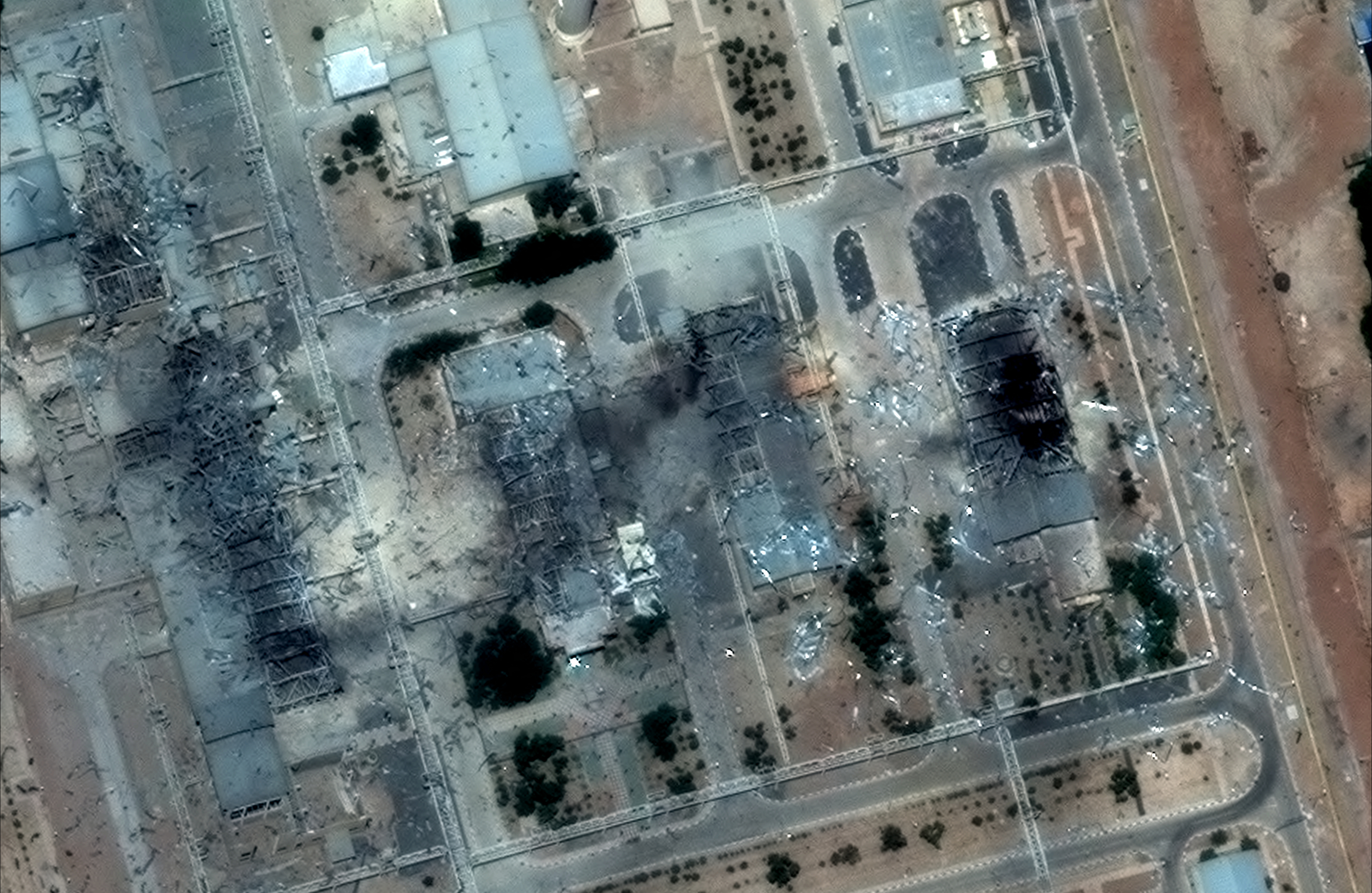
Isfahan nuclear plant, Iran, after the US bombing. Photo: AFP
He argued that a dictatorial regime like Iran's always tries to appear tough even after a defeat, but added that the problem for Tehran is that if the United States and Israel become convinced that it is only trying to buy time to rebuild its nuclear program, then they could launch new attacks against Iran.
"Iran wants to reestablish the deterrence it lost with the Israeli attack by setting conditions for the United States," Heimovits said.
"Foreign Minister Araqchi himself said that Iran is capable of restarting enrichment whenever it wants. And not only that, but they can move quickly and make up for lost time," he added.
Heimovits said that if the United States and Israel offer the guarantee Iran is demanding, their deterrent capacity could be weakened.
"If this happens, it could lead to a situation where Iran delays negotiations as long as possible, as is sometimes known in the Middle East, and in the meantime tries to repair its enrichment capacity and other components of its nuclear program," he said.
"It would be acceptable to the United States and Israel only if, along with the guarantees, a timeframe for reaching an agreement with Iran is set. A short timeframe of three weeks or a month. Because we must not forget that there are reports of groups of Iranian soldiers already working in Natanz and Fordow, apparently trying to reach the bombed underground tunnels to recover whatever they can," Heimovits warned.
A situation where Iran delays negotiations as much as possible, as is sometimes known in the Middle East, and in the meantime tries to repair its enrichment capacity.
Regarding Trump's demand for zero uranium enrichment, Heimovits clarified that there could be room for negotiation, which would involve the creation of a regional consortium to enrich uranium only to 3.67%, which is what is needed to generate electricity, and supply it to Iran.
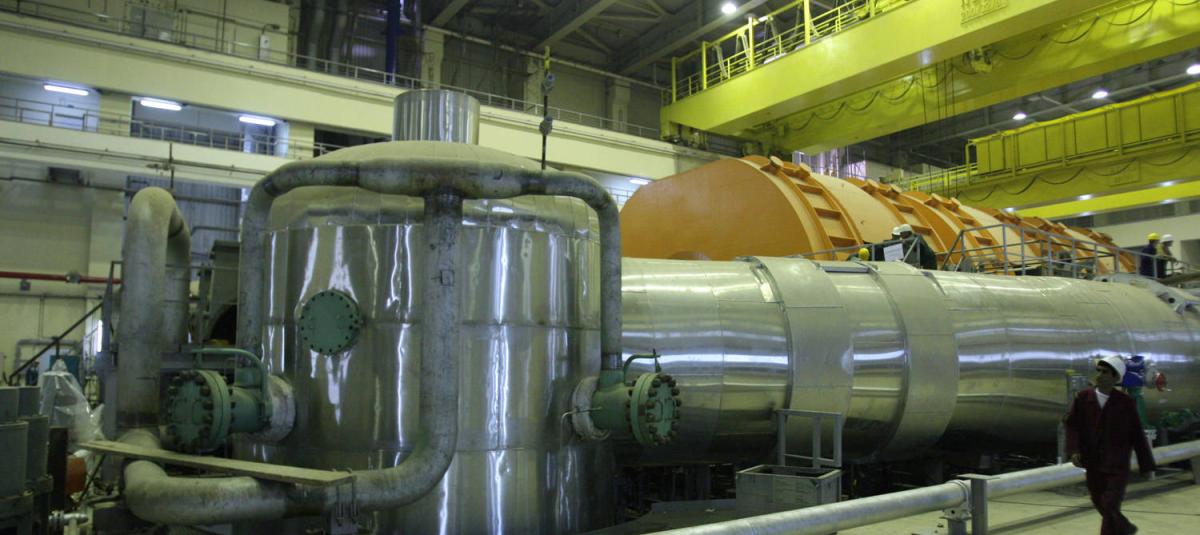
Reference image. Uranium enrichment plant in Iran. Photo: Efe
“No, beyond that, because if Iran is allowed to enrich uranium again freely, it could say it's enriching to 3.67%, but in reality it's doing much more,” he continued.
Heimovits is convinced that Iran was already determined to have nuclear weapons before the 12-Day War. “If that weren't the case, then it doesn't explain why it enriched uranium to 60%, when at that level it can't be used for any civilian purposes, only for military purposes. It also doesn't explain why it enriched 408 kilograms, enough for new nuclear bombs. Furthermore, why did it spend so many billions of dollars on underground facilities if its program was peaceful? It could have worked on above-ground facilities.”
The nuclear weapon Before the war , Iran had 408.6 kilos of 60% enriched uranium, according to the IAEA. It is unknown where this material is or whether it was destroyed by the bombing.
The reality is that by reaching 60% uranium enrichment, Iran had already gone through the most difficult part of the process to obtain a nuclear weapon and was very close to the point of no return, which is 90%.
According to IAEA experts and other specialized sources, if Iran decided to break all limits and accelerate its program to the maximum, it could have enriched uranium from 60% to 90% within a week to three weeks , using its most advanced centrifuges.
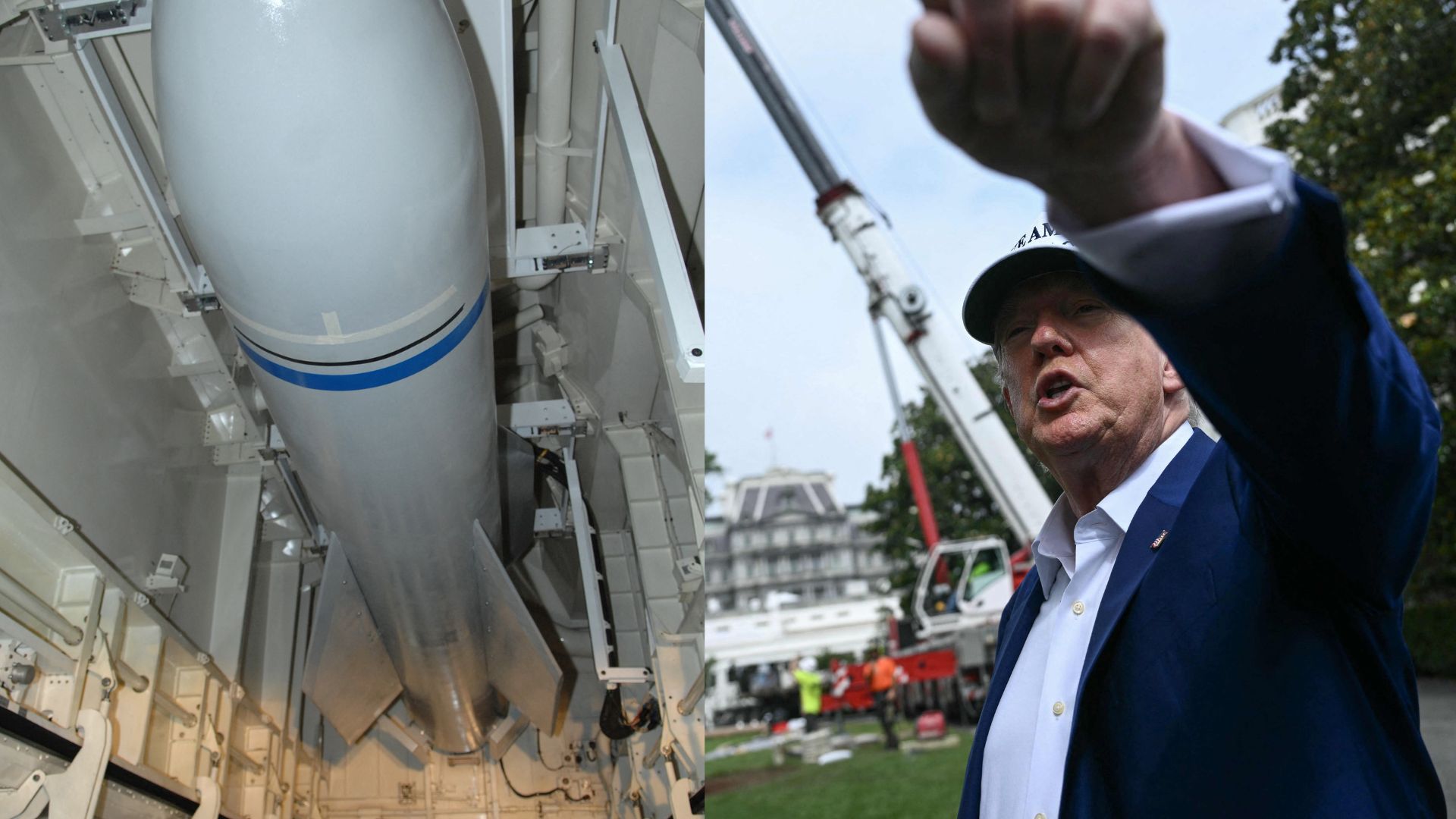
The GBU-57 bomb dropped by the United States. Photo: AFP
Once uranium is enriched to 90%, it could take Iran three to six months to make a basic nuclear bomb .
Then, miniaturizing that bomb for mounting on a ballistic missile can take one to two years.
eltiempo





